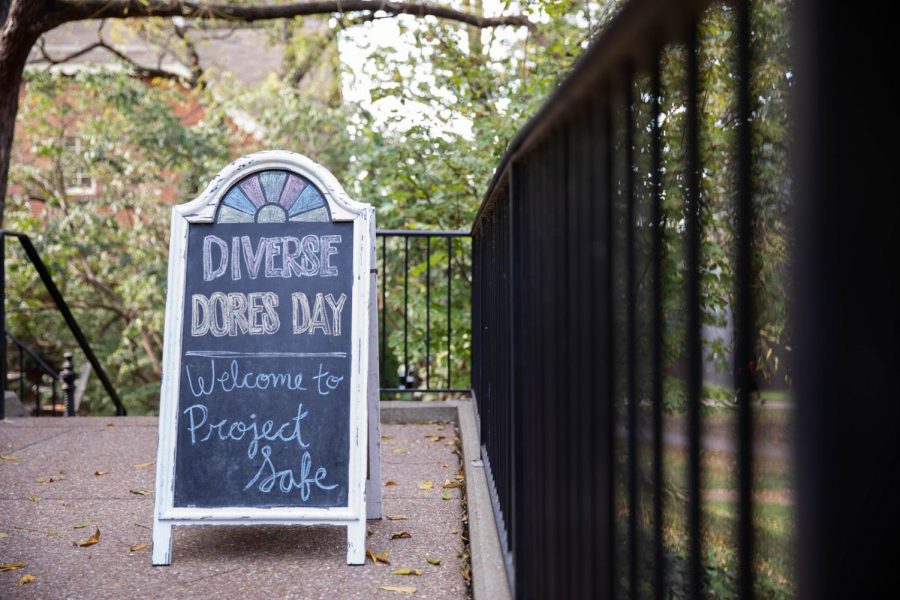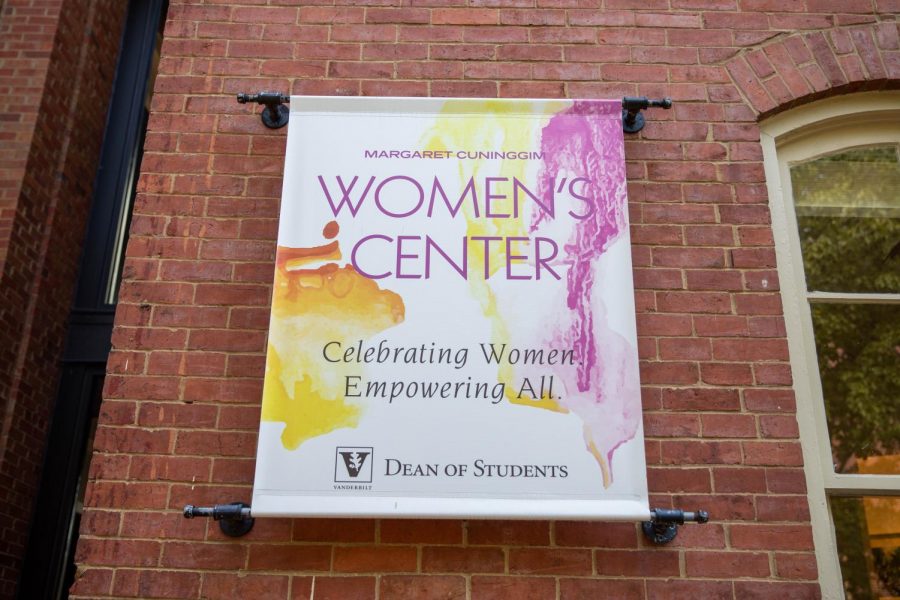Editor’s Note: This story contains information about sexual harassment.
New Title IX regulations came into effect for colleges and universities across the U.S. on Aug. 14. Major changes include a shift to live hearings with cross-examination, a narrower definition of sexual misconduct and the addition of informal resolution alternatives.
Vanderbilt had previously expressed concerns regarding the policy during the public comment period of the rulemaking process, questioning its “one-size-fits-all” model and narrowed definition of sexual harassment.
When the rule was finally released this past May, U.S. colleges and universities were legally required to comply with the new regulations by August 14 or risk losing federal funding. However, in order to maintain its previous, broader definition of prohibited sexual misconduct, Vanderbilt developed companion policies that together address a wider range of behavior than the federal guidelines mandate.
The university also chose to keep its current definition of mandatory reporters and to retain its current “preponderance of evidence” standard, rather than adopting a higher burden of proof in investigations.
What changed?
In November of 2018, the U.S. Department of Education (USDOE) released proposed updates for the Title IX of the Education Amendments of 1972. After a 60-day public comment period and subsequent review of those comments, the finalized regulations were launched on May 6 of this year.
In contrast to previous guidance from the Obama administration, the new regulations are legally binding. Colleges and universities across the U.S. were required to instate the following changes by Aug. 14 of this year—a mere 100 days after the regulations were released—or hazard losing federal funding.
“It’s hard to overstate how challenging this summer was for those of us who do this work on college campuses,” Cara Tuttle Bell, director of the Project Safe Center for Sexual Misconduct Prevention and Response, said. “It would have been overwhelming any year to have a May announcement and an August implementation date. But you add pandemic on top of that, and it was quite the summer.”
Tuttle Bell was part of a working group of campus stakeholders that oversaw implementation of the new rules this summer. Other members included Student Accountability, Equal Employment Opportunity, the offices of the Provost and General Counsel and the Title IX Office, led by Interim Associate Vice Chancellor Stephanie Roth.
Roth said the expedited timeline created “challenges for implementation,” as her office had to revise their adjudication process in order to comply with the new regulations.
Narrowed Definition of Sexual Misconduct
The final rule defines sexual harassment as “unwelcome conduct that a reasonable person would determine is so severe, pervasive, and objectively offensive that it effectively denies a person equal access to education” and includes dating violence, domestic violence and stalking on college campuses.
Vanderbilt was one of 60 universities to express concern about the regulations through a letter from the Association of American Universities, submitted as part of the public comment process. When the rule became law in August, the university responded by developing two companion policies that met and exceeded the narrowed definition’s scope.
First, the Formal Grievance Protocol fulfills the requirements dictated by the USDOE, addressing conduct that falls under the definition of “sexual harassment” as stated above.
Second, the Sexual Misconduct Policy goes beyond those requirements to meet Vanderbilt’s broadened definition of sexual misconduct. A case of sexual misconduct that is not covered by the Formal Grievance Protocol may be covered by the Vanderbilt-specific Sexual Misconduct Policy.
For example, misconduct that occurs off-campus or outside the U.S., the sharing of sexually explicit images online without permission and many forms of verbal harassment do not fall under the USDOE’s definition of “sexual harassment.” These acts still fall under the purview of the Sexual Misconduct Policy, however.
“Vanderbilt has long understood the potential for off-campus behavior to have an on-campus effect,” Roth said in an email to The Hustler. “The Sexual Misconduct Policy provides a basis for addressing conduct that falls outside the Formal Grievance Protocol simply because it occurred in a Student Abroad program or in a off-campus apartment rather than a residence hall.”
Standards of Evidence & Mandatory Reporters
The new regulations also require institutions to determine which standard of evidence to use across all sexual harassment cases: the “preponderance of the evidence” standard or the “clear and convincing” standard.
Vanderbilt has historically used the first standard, which asks investigators to judge based on whether it is more likely than not that a party violated the policy in question. Per Roth, the university chose to retain that standard for both policies listed above, rather than instating the clear and convincing standard, which would have placed a higher burden of proof on the accuser.
Though the new regulations limited the definitions of mandatory reporters—that is, those who are required to report officially sexual misconduct that they witness or hear about—the university has chosen to retain its own broader definition of mandatory reporter. All Vanderbilt faculty, many staff and some students (including resident advisers) are mandatory reporters.
“I’m very proud that Vanderbilt chose to retain some of the features of its existing policies and procedures that help us capture a wide range of behaviors that constitute sexual misconduct and the broad range of people considered to be mandatory reporters,” Tuttle Bell said.
Institution of Live Hearings
One noticeable effect of the new regulations on Vanderbilt’s campus is the institution of live hearings.
As before, the Title IX Office will receive and investigate sexual misconduct complaints by fact-gathering and interviewing relevant parties. If the complainant and respondent are both students, the case will then proceed to a virtual or in-person hearing, in which each parties’ adviser may cross-examine the other party and applicable witnesses. A third-party hearing officer will oversee the hearing, make a determination of whether the respondent violated a policy and declare an appropriate sanction.
This represents a significant departure from the single investigator model Vanderbilt has traditionally employed, in which a Title IX Office investigator collected information from parties separately, issued a determination of whether the respondent violated a policy and referred the case to a separate Vanderbilt office or dean for sanction.
The live hearing model has garnered concern from victim advocates and Vanderbilt students on several fronts, notably its allowance for the use of lawyers and its lack of trauma sensitivity.
Both parties have the option to choose their own adviser or select one from a list of pre-identified advisers from the university at no cost. But, according to Vanderbilt Sexual Assault Awareness and Prevention (VSAAP) Committee member and Vanderbilt junior Lauren King, the fact that parties can hire their adviser suggests that the hearing could swing in favor of whoever obtains a better lawyer.
“Even if both people have a professional of law with them, if someone has more money, then they can hire a better lawyer,” King said.
King and fellow junior Nicole Wright head the Title IX Initiative for the VSAAP. Per King, the committee is also concerned that the live hearing process might deter survivors from reporting to the Title IX Office.
“Our fear with that is that going through a live hearing process and being questioned and cross examinations—that can be really traumatic for a victim,” King said. “You have to relive that whole process.”
King and Wright emphasized that the desire to avoid cross-examination is the very reason many survivors choose to pursue Title IX processes, rather than taking their case to criminal court.
Though survivors are not required to come face-to-face with the accused and students may not directly cross-examine one another, King said the cross-examination process could force the survivor to relive a highly traumatic experience in front of legal advisers and witnesses.
According to Tuttle Bell, leaders across the victim advocacy profession are worried that the prospect of a live hearing with cross-examination will discourage survivors from coming forward.
“Very few people other than lawyers are trained in this area,” Tuttle Bell said. “So, it can feel very new and very scary and very direct for a person to be going through that for the first time—and certainly in the aftermath of trauma.”
Education is needed to help students understand what a live hearing format would look like and how to prepare for its structure, Tuttle Bell said.
Fewer Cases Where Live Hearings Would Apply
According to Tuttle Bell, centers like Project Safe have generally seen a shift in the types of sexual misconduct cases that are reported: from cases of alcohol-facilitated sexual assault by an acquaintance to cases of domestic violence or abuse.
“This semester has been much less social than your typical fall semester, which means that the type of incidents that we’re hearing about, the types of calls that we’re getting are different than in a normal semester,” Tuttle Bell said.
Since reports of domestic violence typically involve one Vanderbilt student and an unaffiliated party, those reports are not subject to Title IX’s jurisdiction and would usually not move to a live hearing.
“Where there are these heightened social calendars with events involving alcohol, that is typically a busy season for an office like mine, and this is just not that semester,” Tuttle Bell said.
Addition of Informal Resolution Options
The new regulations also allow for cases involving two students to be settled through an informal resolution process, involving a remedies-based, non-judicial process. The survivor or respondent may request an informal resolution process at any point after the formal complaint has been filed. This option is not available for cases where a faculty or staff member is a respondent.
Per Tuttle Bell, prevention educators and victim advocates generally feel encouraged by the pathways opened by informal resolution processes.
“This could be an opportunity for us to create options that feel less complicated or feel less intimidating and then have a more restorative or transformative justice approach,” Tuttle Bell said. “A lot of the activism around sexual violence and all forms of sexual harassment and misconduct was really working that way anyway.”
According to Tuttle Bell, treating sexual misconduct as a public health and social justice issue could lead to positive social norming and decrease sexual harassment on college campuses. Additionally, informal resolution often gives the survivor more agency in how the process proceeds, allowing them to shape the process to meet their felt needs in the aftermath of trauma.
Per Tuttle Bell, the university is currently developing options for informal resolution processes.
Continued support from across the university
Despite the changes occasioned by the new regulations, representatives from the Title IX Office, Project Safe and the Women’s Center all emphasized that their central missions and support services remain in place.
“We are still learning about what the new regulations will mean for the campus community,” Margaret Cuninggim Women’s Center director Rory Dicker said in an email to The Hustler. “You should know, though, that the Women’s Center will continue to support women at Vanderbilt through all of its programming related to gender equity, body positivity, sexuality education, and more. The new regulations won’t change any of that.”
Per King, awareness of campus resources like the Women’s Center and Project Safe is even more important in the wake of the new regulations, when survivors may be looking for alternatives to the Title IX process.
Tuttle Bell emphasized that the decision to report sexual misconduct and to seek support is separate from the choice to participate in an investigation. Seeking support in the wake of sexual misconduct does not inevitably subject a case to the Formal Grievance Protocol or a live hearing situation.
“I was worried that a lot of the media coverage was making it sound so scary or intimidating or complicated that students could potentially be discouraged from coming forward,” Tuttle Bell said. “I just really want students to know that you can always come forward for support, and those supportive services remain available.”











